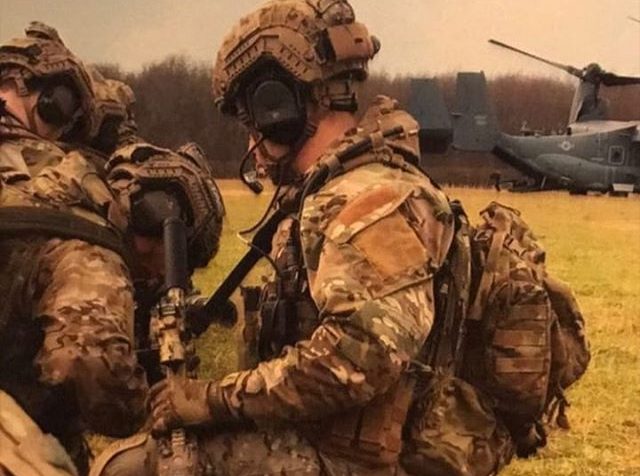The British Ministry of Defence (MoD) is toying with the controversial idea of merging the elite Parachute Regiment and Royal Marines.
This isn’t the first time that a merger between the two elite units has been voiced by senior officials inside the British Ministry of Defence (MoD). Last year, similar reports had been leaked to the media.
The two units have fought alongside one another with few hiccups in the past. During the Falklands War in 1982, Royal Marines and Paras led the way to the recapture of the Islands from the Argentines.
The 16 Air Assault Brigade is Britain’s airmobile rapid deployment force. Among other units, it includes the famous Gurkhas, Parachute Regiment and Pathfinders — a small unit similar to the secretive Ranger Reconnaissance Company (RRC) of the 75th Ranger Regiment. It also contributes one battalion (1 PARA) to the Special Forces Support Group (SFSG) — the Royal Marines also contribute one company to the SFSG.
The 3 Commando Brigade is Britain’s premier amphibious force. Among other units, it’s comprised of two regular Commandos (42 Commando and 45 Commando) and one Maritime Operations Commando (40 Commando). Commandos are battalion-sized units.
It’s worth noting that although the Royal Marines are part of the Royal Navy, they also have some Army representation. There are two Army regiments assigned to 3 Commando Brigade (24 Commando Regiment, Royal Engineers and 29 Commando Regiment, Royal Artillery), that provide direct and indirect support. British Soldiers who wish to join 3 Commando Brigade have to complete a shortened version, the All Arms Commando Course, than the one that their Royal Marines brethren have to go through; shortened, however, doesn’t mean easier. They undergo the same gruelling events, but not the basic soldiering stuff that Royal Marines recruits learn.
A potential merger, however, will not see both units intact. In fact, the proposals argue for an Army Commando unit, but of reduced in size. If the proposals were motivated by a desire to create a more lethal and effective unit, then they could have been properly entertained and scrutinized by the parties concerned. But when the incentive behind the proposals is to save money in the defense budget, then one understands the skepticism that senior MoD officials and military officers voice about the proposed scheme.
A Special Operations unit at heart, the Royal Marines have been bogged down to conventional tasks in the most recent conflicts in Afghanistan and Iraq.
Then again, it’s a pre-election period in the U.K., and such proposals are bound to emerge as the Conservative and Labour parties vie for votes. How realistic the proposal is will be determined in the near future.
Already have an account? Sign In
Two ways to continue to read this article.
Subscribe
$1.99
every 4 weeks
- Unlimited access to all articles
- Support independent journalism
- Ad-free reading experience
Subscribe Now
Recurring Monthly. Cancel Anytime.











COMMENTS